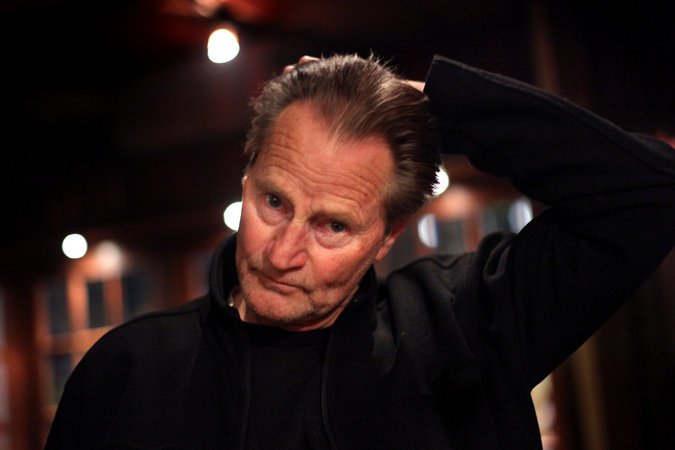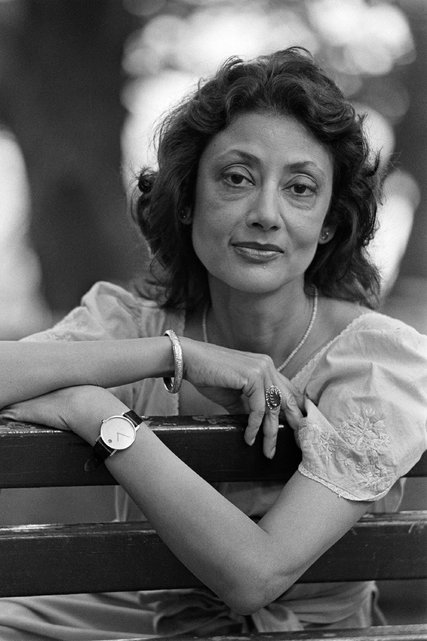Television land was further depopulated by the passings of Jim Nabors (the indelible Gomer Pyle), Adam West (“Batman”), Rose Marie (after Ms. Moore, the second female star of “The Dick Van Dyke Show” to die this year), Robert Guillaume (“Benson”), Martin Landau (“Mission: Impossible”), Mike Connors (“Mannix”), Erin Moran (“Happy Days”) and Bill Dana (whose name, by the way, was actually not José Jimenéz) — not to mention the game-show perennials Monty Hall (“Let’s Make a Deal”) and Chuck Barris (“The Newlywed Show,” “The Gong Show”).
Advertisement
Continue reading the main story
No strangers to the television screen were the comics Irwin Corey, that foremost authority on, well, whatever it was; Shelley Berman, who did his stand-up sitting down, on his signature stool, to fret about an anxious age; Don Rickles, who made insults a comic art; and Dick Gregory, who for all his barbed wit saw no joke in his campaigns for civil rights.
Pillars of the theater fell: the directors Peter Hall, who towered on both sides of the Atlantic, and Max Ferra, who championed the work of Latinos; the British actors John Hurt, Roy Dotrice and Alec McCowen; and the playwrights A. R. Gurney and Sam Shepard, though “playwright” alone does little justice to the uncontainable Mr. Shepard’s manifold artistry, which branched as well into movies, television, music and fiction.

Voices in Print
In death he joined a pride of literary lions, like the poets John Ashbery, whose voice — “by turns playful and elegiac, absurd and exquisite,” his obituary said — remained singular despite his many imitators; Richard Wilbur, the American laureate and Pulitzer Prize winner whose words, by many lights, coalesced into things of beauty; and Derek Walcott, the Nobel winner who filtered his acute observations on colonialism and culturalism through the rustling palms of his native Caribbean.
Fiction lost luminaries like the mystery writer Sue Grafton and Paula Fox, whose books — some for adults, some for the young — recognized that loss and dislocation were subjects that anyone of any age can understand. William Peter Blatty left us with “The Exorcist,” which still has the power to terrify, in both its dog-eared pages and its movie adaptation. Michael Bond bequeathed Paddington Bear, Denis Johnson a gallery of the down-and-out who, through his revelatory writing, achieved transcendence.

J. P. Donleavy, the American expat in Ireland, will be remembered for “The Ginger Man,” but his rambunctious literary output knew bounds far wider than that. And at a time when immigration remains as contentious as ever, Bharati Mukherjee, an Indian-born American, gave, through her fiction, voices to people caught up in it.
Other writers fell under that familiar publishing category that settles on describing their work in the negative. But rather than calling it “nonfiction,” one imagines that the feminist author Kate Millett, the Roman Catholic social philosopher Michael Novak and the historian Hugh Thomas, to name a few, would have described their books as their best efforts to discern the truth.
The same, no doubt, would have been said by a cadre of journalists. They spent decades taking on the powerful, baring their misdeeds, piercing their pomposities — raking the muck in one way or another. We remember the irrepressible Jimmy Breslin, the dogged Wayne Barrett, the provocateur Nat Hentoff, the inexhaustible TV newsman Gabe Pressman. And Liz Smith, who pulled back the curtains on the social whirl with her tabloid gossip scoops.
Probably few in the history of mass media had as much influence as S. I. Newhouse, at Condé Nast, Roger Ailes, at Fox, and Hugh Hefner, who created the Playboy empire and, for himself, the unabashed persona of an age-defying voluptuary.
Advertisement
Continue reading the main story
They became public figures, much like those the news media scrutinized. One was David Rockefeller, the banker and philanthropist who was received abroad as if he were a head of state. Others had navigated largely inside the Beltway: the Realpolitik White House adviser Zbigniew Brzezinski, the maverick Republican congressman and wave-making presidential candidate John Anderson, and the Republican congressional leaders Robert Michel, in the House, and Pete Domenici, in the Senate, both of them G.O.P. stalwarts who nevertheless reached across the aisle.
Continue reading the main story
Article source: https://www.nytimes.com/2017/12/29/obituaries/deaths-in-2017-among-the-luminaries-fighters-with-a-cause.html?partner=rss&emc=rss
Speak Your Mind
You must be logged in to post a comment.